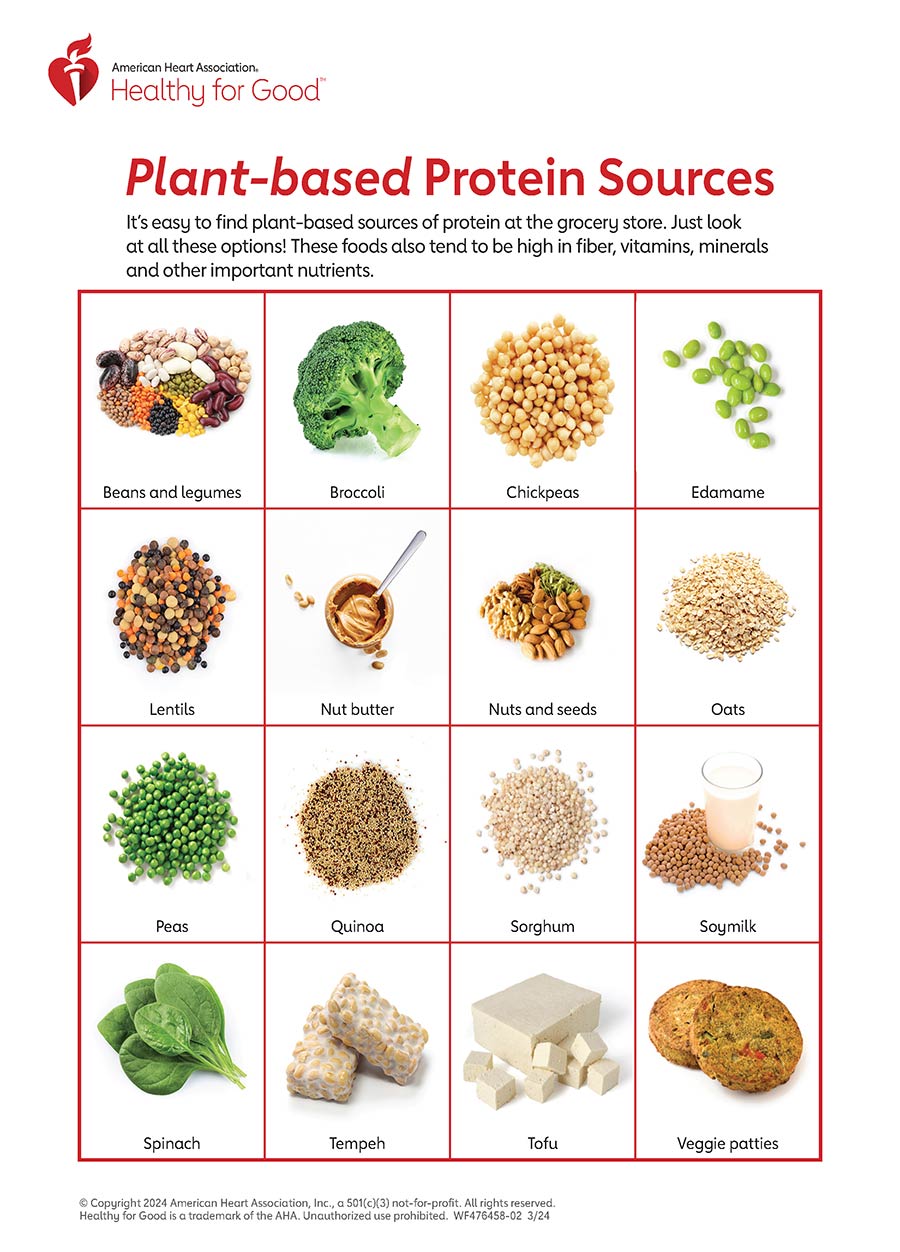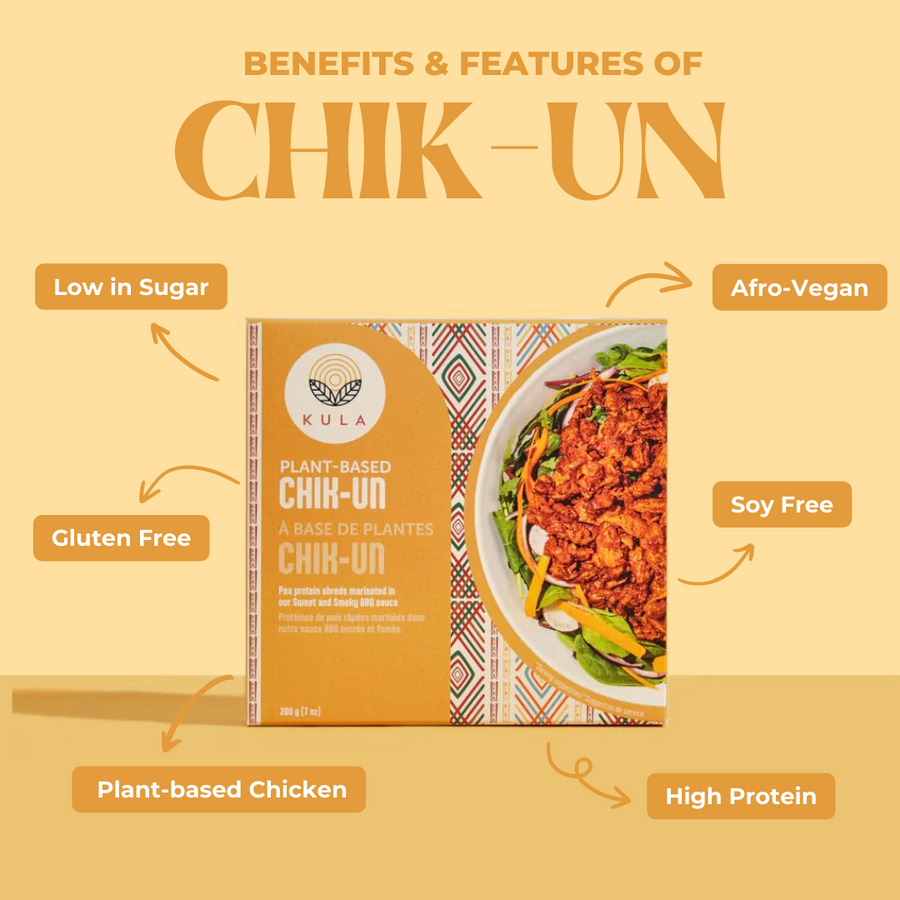The Top 5 BBQ Sauces Every Plant-Based Chef Should Stock
Everything About Healthy Food: Advantages of Enjoying Plant Based Alternatives
The conversation surrounding plant-based diet plans has actually gained considerable attention in recent times. Lots of people are exploring the prospective health and wellness benefits, nutritional benefits, and environmental impacts related to these dietary choices. As people end up being much more knowledgeable about their food's influence on well-being and sustainability, concerns occur concerning the usefulness of taking on such a way of life. What specific adjustments can one expect, and exactly how might these choices reshape not just individual health and wellness but also the planet's future?
Recognizing Plant-Based Diet Regimens
Although many individuals associate plant-based diet plans primarily with vegetarianism or veganism, these diet regimens can incorporate a variety of consuming patterns that focus on entire, minimally processed plant foods. Such diet plans often consist of fruits, veggies, whole grains, legumes, nuts, and seeds, while getting rid of or restricting animal items. This flexibility enables people to tailor their nutritional selections according to nutritional demands and individual preferences. Some might embrace a mainly plant-based diet while still periodically consuming meat or dairy products, usually referred to as a flexitarian approach. The emphasis remains on integrating more plant foods, which can lead to a diverse variety of tastes and dishes. Understanding these different interpretations of plant-based consuming is vital for valuing its access and appeal in contemporary food society.
Health And Wellness Conveniences of Plant-Based Foods
The wellness advantages of plant-based foods are substantial, using a nutrient density benefit that sustains total wellness. Research suggests that these foods can enhance heart health and play a necessary role in reliable weight management. By integrating much more plant-based options, individuals might enhance their dietary selections and advertise long-lasting health.
Nutrient Density Advantage
Nutrient density plays an important duty in the wellness benefits of plant-based foods, making them an engaging choice for those looking for a well balanced diet. Plant-based foods, such as fruits, veggies, legumes, nuts, and whole grains, are typically rich in essential vitamins, minerals, and anti-oxidants while being reduced in calories. This high nutrient thickness allows individuals to consume less calories while still meeting their dietary requirements. Furthermore, these foods are packed with nutritional fiber, promoting gastrointestinal wellness and helping in weight administration. By including nutrient-dense plant-based options, consumers can boost their total health and wellness, support their immune systems, and lower the danger of chronic conditions. Eventually, the nutrient density of plant-based foods emphasizes their value in a health-conscious lifestyle.
Heart Wellness Enhancement

Weight Management Assistance
In addition to advertising heart health, a plant-based diet can significantly aid in weight monitoring. This dietary strategy emphasizes entire foods such as fruits, vegetables, beans, nuts, and whole grains, which are normally lower in calories and greater in fiber contrasted to animal-based products. The high fiber web content helps boost satiety, minimizing overall calorie intake. Furthermore, plant-based diet plans are often abundant in vital nutrients while reduced in unhealthy fats, making it much easier to keep a healthy weight. Gluten Free BBQ Sauce. Study shows that individuals who embrace a plant-based way of living often tend to have lower body mass indexes (BMIs) and experience even more effective fat burning compared to those who take in meat-heavy diet regimens. Consequently, embracing plant-based choices is a calculated selection for efficient weight monitoring
Nutritional Worth of Plant-Based Ingredients
Plant-based ingredients are rich in vital nutrients, using a varied variety of vitamins, minerals, and anti-oxidants that add to total wellness. A contrast of healthy protein resources exposes that while pet products are commonly considered as premium, several plant-based alternatives give ample healthy protein and various other helpful substances. Comprehending the nutritional value of these ingredients can help people make educated nutritional options.
Vital Nutrients in Plants
Nutrient-rich components found in plants offer a varied selection of necessary minerals and vitamins that contribute greatly to overall wellness. These components are rich in vitamins A, C, and K, which sustain immune feature, vision, and blood clotting, respectively. Additionally, plants supply my company essential minerals such as magnesium, potassium, and calcium, important for heart health, muscular tissue feature, and bone toughness. The existence of fiber in plant-based foods aids food digestion and promotes a healthy and balanced digestive tract microbiome. Anti-oxidants, discovered generously in vegetables and fruits, help battle oxidative tension and lower inflammation. Moreover, lots of plant foods are low in calories yet high in nutrients, making them a superb option for those looking for to maintain a healthy and balanced weight while guaranteeing excellent nutrient intake.
Contrasting Healthy Protein Sources
Healthy protein resources vary significantly in their nutritional accounts, with plant-based active ingredients using special advantages. Unlike animal healthy proteins, which usually consist of saturated fats and cholesterol, plant proteins often tend to be reduced in these undesirable components. Legumes, nuts, seeds, and entire grains are rich in vital amino acids, fiber, vitamins, and minerals. For example, lentils provide high healthy protein material alongside substantial iron and folate, while quinoa is a total protein, supplying all nine important amino acids. Furthermore, plant-based healthy proteins are typically accompanied by anti-oxidants and phytochemicals that sustain overall wellness. The shift to plant-based healthy protein sources not just enhances dietary consumption however additionally click for more info lines up with lasting dietary techniques, decreasing ecological impact and advertising long-term health and wellness advantages.
Environmental Effect of Plant-Based Consuming
As understanding of environment change grows, several individuals are discovering sustainable dietary selections that can greatly decrease their environmental footprint. Plant-based consuming has actually become a substantial factor to decreasing greenhouse gas discharges, which are primarily related to animals manufacturing. The cultivation of fruits, grains, see this here vegetables, and vegetables commonly requires fewer resources, such as water and land, compared to animal farming. Furthermore, plant-based diet regimens can bring about decreased deforestation, as less land is needed for grazing livestock or growing pet feed. By changing in the direction of plant-based alternatives, customers can sustain biodiversity and advertise much healthier communities. In general, accepting plant-based eating not only benefits personal health but also represents an essential action towards ecological sustainability and conservation initiatives.
Conquering Common Misconceptions
While several people identify the advantages of a plant-based diet plan, a number of false impressions often deter them from fully welcoming this way of living. An usual idea is that plant-based diet plans lack sufficient healthy protein; nonetheless, many plant resources, such as vegetables, nuts, and tofu, offer ample protein. Additionally, some assume that this diet is pricey, when as a matter of fact, staples like beans, rice, and seasonal veggies can be quite cost effective. One more misunderstanding is that plant-based eating is extremely limiting, whereas it actually supplies a varied array of tastes and foods. Lots of worry that a plant-based diet regimen may lead to shortages, yet with proper preparation, individuals can acquire all necessary nutrients, consisting of vitamins and minerals, while taking pleasure in a wide selection of delicious dishes.
Tips for Transitioning to a Plant-Based Way of life
Making the change to a plant-based way of living can be an enriching experience, though it typically calls for some assistance to browse the initial adjustments. First, people are urged to start progressively, incorporating more fruits, veggies, beans, and whole grains into their dishes while reducing meat and dairy products intake. Meal planning is vital; preparing an once a week food selection can help relieve the modification and protect against last-minute unhealthy options. Checking out brand-new dishes and cooking approaches can likewise improve the experience and preserve exhilaration concerning plant-based consuming. In addition, signing up with support system or communities can provide motivation and share valuable suggestions. Remaining educated concerning nourishment warranties well balanced meals, avoiding deficiencies while fostering a healthy, satisfying plant-based lifestyle.

Delicious Plant-Based Meal Concepts
Exploring tasty plant-based dish ideas can influence people to embrace a much more nourishing diet. One prominent choice is a passionate quinoa salad, featuring cherry tomatoes, cucumber, and a spicy lemon-tahini clothing. Another favorite is a mouthwatering lentil stew, loaded with carrots, celery, and fragrant herbs, ideal for a calming supper. For breakfast, overnight oats made with almond milk, chia seeds, and topped with fresh berries provide a nutritious begin to the day. Furthermore, a vivid vegetable stir-fry with tofu and a variety of vibrant veggies can be a quick yet satisfying dish. Creamy avocado toast on whole-grain bread, sprinkled with spices and seeds, provides a basic yet delicious treat. These dishes display the range and richness of plant-based eating.

Often Asked Questions
Can a Plant-Based Diet Regimen Give Enough Healthy Protein?
The concern of whether a plant-based diet can give adequate protein is usual. Various sources, consisting of legumes, nuts, seeds, and entire grains, can meet healthy protein needs properly, supporting a nutritious and well balanced diet plan for individuals.
Are Plant-Based Diet Regimens Ideal for Children?
The suitability of plant-based diet regimens for kids relies on mindful planning. Appropriate nutrients have to be ensured, including proteins, vitamins, and minerals. With proper guidance, such diet regimens can support healthy growth and development in children.
Exactly how Do I Eat in restaurants on a Plant-Based Diet?
Dining out on a plant-based diet plan entails looking for dining establishments with diverse food selections, asking for alterations, and discovering vegan-friendly alternatives. Planning in advance and interacting dietary choices can enhance the eating experience while maintaining nutritional selections.
What Are Common Irritants in Plant-Based Foods?
Common irritants in plant-based foods consist of soy, gluten, nuts, and seeds - Plant Based Chicken. People following a plant-based diet plan ought to recognize these allergens and read labels meticulously to prevent adverse responses and assure secure usage
Can Plant-Based Diets Assist With Weight Loss?
Study suggests that taking on a plant-based diet might promote weight reduction as a result of its usually reduced calorie thickness and higher fiber material. This mix can enhance satiation, aiding individuals handle their caloric consumption efficiently. Several individuals connect plant-based diet plans generally with vegetarianism or veganism, these diet plans can incorporate a wide range of consuming patterns that prioritize entire, minimally refined plant foods. Nutrient thickness plays a vital duty in the wellness benefits of plant-based foods, making them an engaging choice for those looking for a well balanced diet regimen. Plant-based diet plans have actually been revealed to markedly boost heart wellness, as they often include components that support cardio feature. In addition to promoting heart health and wellness, a plant-based diet regimen can considerably aid in weight monitoring. An usual belief is that plant-based diet regimens do not have adequate healthy protein; however, numerous plant sources, such as legumes, nuts, and tofu, offer sufficient protein.